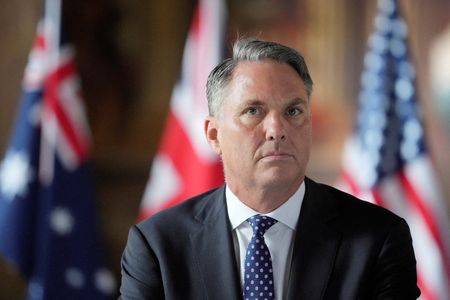By Antoni Slodkowski and Laurie Chen
BEIJING (Reuters) – For the last three years, China has repeatedly signalled a willingness to act as a peacemaker in the war in Ukraine.
There were rounds of shuttle diplomacy by Beijing’s envoy to countries from South Africa to Indonesia. A peace plan with Brazil. A group of “friends for peace” with developing nations. And even a proposal to send Chinese peacekeepers to Europe.
But when Russian and U.S. officials met in Saudi Arabia this week, Chinese President Xi Jinping was nowhere near the table, instead meeting with China’s tech entrepreneurs in Beijing.
China’s priorities are clear: it is focused on repairing its economy and trying to hammer out a deal with U.S. President Donald Trump to avoid another damaging trade war.
And while Beijing wants to be seen as a global peacemaker, it is seeking to do so without incurring costs or taking risks, especially if they could undermine its ties with Moscow, on which it relies for cheap energy.
“If China doesn’t buy gas from Russia, which country can provide enough gas to meet the needs of the Chinese people? It’s not possible, and it’s not safe,” China’s top diplomat, Wang Yi, this week told the Munich Security Conference, a top global forum on security and diplomacy.
The statement, observers said, was the clearest illustration of how China was unwilling to use a major lever it had to pressure Russia – its record-breaking purchases of close to 23 billion cubic meters of gas annually.
Without a meaningful role in the Ukraine process, China has been able to focus on trade and the economy. Xi has directed Chinese bureaucrats to study Trump’s trade policies and prepare responses to his initial tariffs and threats, two people familiar with the situation say.
China has also deliberately dialed down the tone used by foreign ministry spokespeople to keep prospects of a deal with Trump alive, said the people, two of more than a dozen Reuters interviewed for this story.
They include people familiar with the thinking of the Chinese government, Beijing-based diplomats and analysts. Most spoke on condition of anonymity because they are not authorised to speak to the media.
“We will… work with other countries, especially Global South countries, to put forth more objective, fair and rational voices, to gather consensus to stop the war and pave the way for peace,” China’s Foreign Ministry said in a statement to Reuters.
BEHIND CLOSED DOORS
Trump stunned the world this week by opening peace negotiations directly with Russian President Vladimir Putin without Ukraine or Europe, offering concessions before the talks started, calling Ukraine’s President Volodymyr Zelenskiy a “dictator” and blaming him for the invasion Putin launched in February 2022.
In Munich, Wang called for “all stakeholders”, including Europe, to be at the negotiating table.
European diplomats said that while positive, Wang’s gesture fundamentally did not address the issue Europe has been raising with China for months: Its de facto bankrolling of the war through energy purchases and its support for Russia’s military-industrial base – which China denies.
Noah Barkin, senior adviser in Rhodium Group’s China practice, said Wang was advocating on Europe’s behalf because China is worried about getting shut out of postwar reconstruction.
“Europe and China’s interests are not aligned by any means, but both have an interest in ensuring that this does not turn into a pact sealed by Trump and Putin behind closed doors,” he said.
Diplomats also played down the notion that Trump’s rapid outreach to Putin could undermine Xi’s “no-limits” partnership with Russia.
“Wishful thinking. This idea ignores the depth of coordination, exchanges and closeness between the leaders,” said a senior European diplomat. “Russia is so reliant on China – they won’t risk their ties to Beijing because Trump gave them a call.”
Although for the last three years China has largely ignored Beijing-based Ukrainian diplomats by granting few meetings and not engaging in substantive talks, people familiar with the situation say, it has recently changed tack on Europe.
Several diplomats said they have noticed a much greater willingness by China to engage with European diplomats in recent days. Beijing even dispatched veteran diplomat Hua Chunying to Brussels, said two people briefed on her trip.
Ties between Brussels and Beijing have been frosty as the European Union raises issues including market access for European companies, the bloc’s massive trade deficit and China’s manufacturing overcapacity.
But despite greater engagement, China has not offered any concessions on those issues or made any decisive moves, anticipating the 10% tariffs Trump has imposed on Chinese goods was just his opening salvo, said the diplomats.
“I haven’t seen any signs that China is prepared to change its approach to trade or to Russia in order to facilitate some sort of rapprochement with Europe,” said Barkin. “Beijing probably believes that Europe is in such a position of weakness at the moment that concessions are unnecessary.”
(Additional reporting by Hong Kong newsroom; Editing by Lincoln Feast.)










